Nigeria is embarking on one of the largest integrated immunization campaigns in its history, aiming to protect approximately 106 million children against measles, rubella, and polio. This massive national initiative will bring together multiple vaccines and child health services into a single campaign to ensure effective rollout to children across the country.
The campaign targets children aged 0 to 14 years for measles and rubella and those aged 0 to 59 months for polio. Implementation will be divided into two phases: the first, launched today, covers 20 high-risk northern states and Oyo State in the Southwest. The second phase, scheduled for January 2026, will extend to the remaining states in the southern region.
In an effort to reach every community, health professionals will be deployed in a system that provides services from both fixed posts and temporary mobilization points, while other mobile “mop-up teams” will go door-to-door, ensuring that even children living in the most remote and underserved areas are taken into account.
In addition to vaccines against measles, rubella, and polio, the campaign integrates routine immunization with other essential child health services, including treatment for neglected tropical diseases and chemoprevention of seasonal malaria in high-risk areas. This comprehensive approach supports the Primary Health Care Under One Roof strategy and advances the agenda of effective health campaigns toward universal health coverage.
The initiative follows ongoing outbreaks of circulating poliovirus type 2 variants, as well as measles and rubella outbreaks affecting Nigeria and the wider Lake Chad Basin region. Nigeria is coordinating efforts with Cameroon, Niger, the Central African Republic, and Chad on a cross-border action plan aimed at ending active outbreaks by the end of 2025 and eliminating residual risks by the end of 2026.
Nigeria’s Minister of Health and Social Welfare, Dr. Ali Pate, who led the coordination efforts, said, “On behalf of the government, I wish to express our deep respect and gratitude to Nigeria’s frontline health workers for their tireless dedication. I urge you to lead this campaign with the same resilience and commitment you have shown over the years. As a parent myself, I know that no parent would ever refuse something that protects their child. Vaccines are safe and they save lives.”
This campaign builds on the encouraging results of two recent operations carried out between August and September 2025 in 11 northern states, outside of regular vaccination cycles. They enabled the vaccination of more than 3.1 million children, the provision of nutritional support to 500,000 malnourished children, and the deployment of malaria prevention measures for 150,000 children.
“Nigeria’s integrated approach is a good example for the region. By combining our efforts against measles, rubella and polio, and working together with communities and partners, we are moving firmly towards a future where no African child is condemned to suffer or die from preventable diseases,” said Dr. Mohamed Janabi, World Health Organization (WHO) Regional Director for Africa.
Ahead of this national rollout, Nigeria also strengthened its campaign systems to ensure smooth implementation. Trainers were mobilized across all states, payment mechanisms for frontline health workers were revised for greater efficiency, and campaign systems were optimized for better data integration and integrity. These investments aim to ensure that every health worker receives the necessary support and that every child vaccinated is accurately recorded, thereby strengthening accountability and building trust in the program.
Nigeria is also introducing a new combined measles-rubella vaccine to replace the monovalent measles vaccine. Measles is highly contagious and potentially fatal, especially for malnourished children, while rubella can cause serious birth defects (congenital rubella syndrome) if contracted during pregnancy.
The campaign is led by the Government of Nigeria, with support from organizations such as WHO, the United Nations Children’s Fund, Gavi, the Vaccine Alliance, Rotary International, the Gates Foundation, the Africa CDC, and in collaboration with civil society organizations, as well as traditional and religious leaders. Robust coordination mechanisms have been put in place to ensure funding, social mobilization, training, vaccine management, and logistics, to ensure the campaign’s success.
World Health Organization


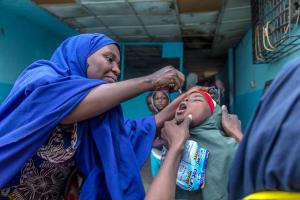
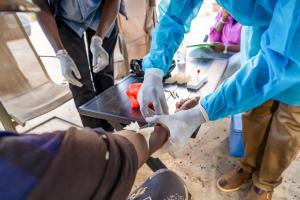
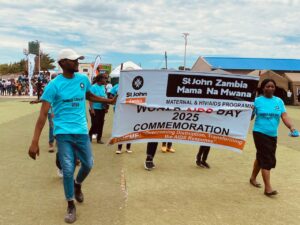
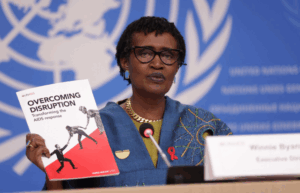
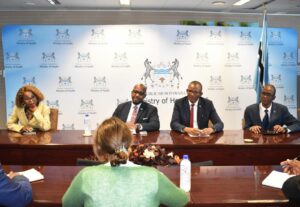
OTHER ARTICLES
Rift Valley Fever in Senegal: On the Frontline to Protect Communities
Zambia : commemorates world AIDS day
UNAIDS releases its 2025 World AIDS Day report: Overcoming disruption, transforming the AIDS response